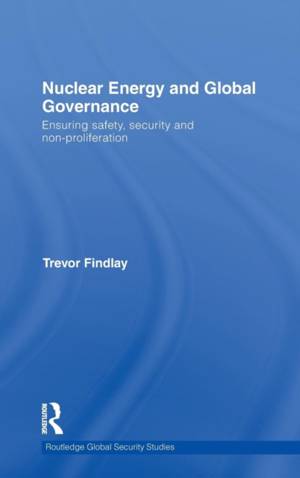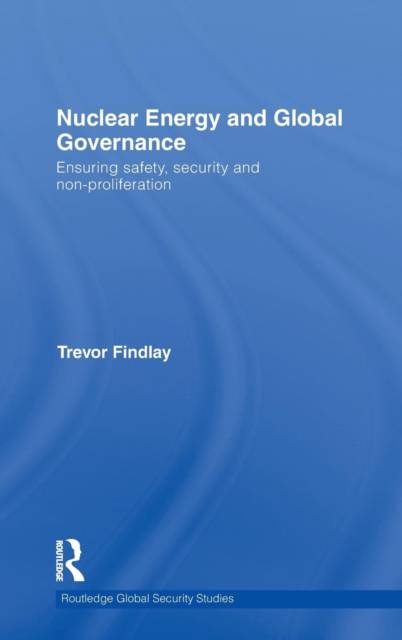
- Retrait gratuit dans votre magasin Club
- 7.000.000 titres dans notre catalogue
- Payer en toute sécurité
- Toujours un magasin près de chez vous
- Retrait gratuit dans votre magasin Club
- 7.000.000 titres dans notre catalogue
- Payer en toute sécurité
- Toujours un magasin près de chez vous
Description
The book considers the implications of the nuclear energy revival for global governance in the areas of safety, security and non-proliferation.
Increased global warming, the energy demands of China, India and other emerging economic powerhouses and the problems facing traditional and alternative energy sources have lead many to suggest that there will soon be a nuclear energy 'renaissance'. This book examines comprehensively the drivers of and constraints on the revival, its nature and scope and the possibility that nuclear power will spread significantly beyond the countries which currently rely on it. Of special interest are developing countries which aspire to have nuclear energy and which currently lack the infrastructure, experience and regulatory structures to successfully manage such a major industrial enterprise. Of even greater interest are countries that may see in a nuclear energy program a 'hedging' strategy for a future nuclear weapons option.
Following on from this assessment, the author examines the likely impact of various revival scenarios on the current global governance of nuclear energy, notably the treaties, international organizations, arrangements and practices designed to ensure that nuclear power is safe, secure and does not contribute to the proliferation of nuclear weapons. The book concludes with recommendations to the international community on how to strengthen global governance in order to manage the nuclear energy revival prudently.
This book will be of much interest to students of energy security, global governance, security studies and IR in general.
Spécifications
Parties prenantes
- Auteur(s) :
- Editeur:
Contenu
- Nombre de pages :
- 288
- Langue:
- Anglais
- Collection :
- Tome:
- n° 21
Caractéristiques
- EAN:
- 9780415493642
- Date de parution :
- 01-06-09
- Format:
- Livre relié
- Format numérique:
- Genaaid
- Dimensions :
- 155 mm x 234 mm
- Poids :
- 430 g







